 Weird Stuff
Weird Stuff  Weird Stuff
Weird Stuff  Animals
Animals 10 Inspiring Tales of Horses Being Human
 Mysteries
Mysteries Top 10 Haunting Facts About the Ghost Ship MV Alta
 History
History 10 Surprising Stories About the Texas Rangers
 Humans
Humans 10 Philosophers Who Were Driven Mad by Their Own Theories
 Miscellaneous
Miscellaneous 10 Video-Game-Worthy Weapons and Armors from History
 Weird Stuff
Weird Stuff 10 Psychics Who Accurately Predicted Wartime Events
 The Arts
The Arts 10 Pieces of Art Inspired by a Broken Heart
 Health
Health 10 Science Fiction-Sounding New Medical Treatments
 History
History 10 Surprising Facts About the Father of Submarine Warfare
 Weird Stuff
Weird Stuff 10 Times Real Laws Were Based on Bizarre Hypotheticals
 Animals
Animals 10 Inspiring Tales of Horses Being Human
 Mysteries
Mysteries Top 10 Haunting Facts About the Ghost Ship MV Alta
Who's Behind Listverse?

Jamie Frater
Head Editor
Jamie founded Listverse due to an insatiable desire to share fascinating, obscure, and bizarre facts. He has been a guest speaker on numerous national radio and television stations and is a five time published author.
More About Us History
History 10 Surprising Stories About the Texas Rangers
 Humans
Humans 10 Philosophers Who Were Driven Mad by Their Own Theories
 Miscellaneous
Miscellaneous 10 Video-Game-Worthy Weapons and Armors from History
 Weird Stuff
Weird Stuff 10 Psychics Who Accurately Predicted Wartime Events
 The Arts
The Arts 10 Pieces of Art Inspired by a Broken Heart
 Health
Health 10 Science Fiction-Sounding New Medical Treatments
 History
History 10 Surprising Facts About the Father of Submarine Warfare
10 Infuriating Cases Of People Refusing To Help
If you saw someone in trouble, would you help? It’s a question we hope none of you ever have to answer. Though many of us would like to believe we’d help and that a stranger would do the same for us, that isn’t always the case. Here are 10 people who, for whatever reason, refused to . . .
10 Save A Drowning Child
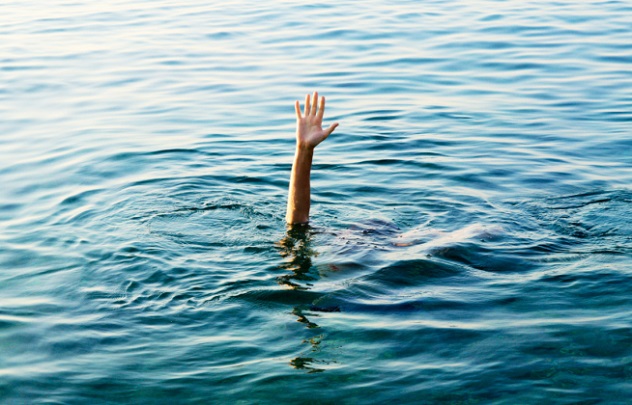
When 10-year-old Jordon Lyon saw his younger sister, Bethany, fall into a canal in the English city of Manchester, he didn’t hesitate to leap into the water in an attempt to save her. However, Jordon’s lion-like courage was betrayed by his small frame and he became submerged a short while after jumping into the water. Jordon’s family quickly scrambled for help and eventually managed to elicit the assistance of two passing police community support officers (PCSOs), who are volunteer police officers made up from keen members of the public with an interest in helping people, the law, and generally being an asset to the community. When the two PCSOs arrived at the water’s edge and were informed of the situation at hand, they quietly explained to the family that the situation was too dangerous and that they’d need to call for police help, wasting valuable minutes Jordon didn’t have.
When later questioned about why they didn’t jump into the water themselves, the PCSOs claimed that “they weren’t trained for the situation.” Meanwhile, two members of the public had already lept into the water and saved Bethany in the time it took for actual police officers to arrive and rescue Jordan. Sadly, though officers managed to drag Jordan from the water, they were unable to resuscitate him. While it’s true that the PCSO’s probably weren’t trained to deal with a situation like that—and a later court case did absolve them of any wrongdoing, their actions were condemned by the chairman of the Police Federation of the entire Manchester area, who stated “People throw themselves into rivers and ponds to save people every day because it’s the right thing to do.” That had to smart.
9 Give Lifesaving Medicine To A Dying Girl

When 14-year-old Emma Sloan, who suffered from a crippling nut allergy, accidentally ingested peanut-based satay sauce during a Christmas meal with her family, she didn’t realize her mistake until her throat began closing up. Emma and her family hurried out of the restaurant to seek help, at which point Emma took a sharp turn for the worse and it became apparent she needed immediate help. Tragically, neither Emma nor her family had an EpiPen—a shot of pure adrenaline which can reduce to immediate symptoms of anaphylactic shock—on hand.
While an ambulance was called, Emma’s mother rushed her to a nearby pharmacy, where she calmly explained the situation and asked the cashier for an EpiPen. Unfortunately, they had the good fortune to happen upon a cashier who took the law deadly seriously—literally. He denied the request, stating that he couldn’t serve anyone without a prescription. Even after Emma collapsed, the cashier refused to budge on his position, advising the family to take her to the emergency room when he could have given her a life-saving injection right there. When medical professionals arrived on the scene minutes later, they were unable to reverse the damage that had been done and Emma tragically died.
Some have attempted to defend the cashier’s actions, reasoning that he had no way of knowing that an EpiPen wasn’t going to make things worse and that he could have been sued if it did. However, while the contents of an EpiPen can be dangerous, an injection when it’s not needed won’t usually have adverse effects on a person. Of course, any reasonable person will agree that being sued is a whole lot worse than dying, though.
8 Save A Drowning Man (Who Had Just Saved Them)
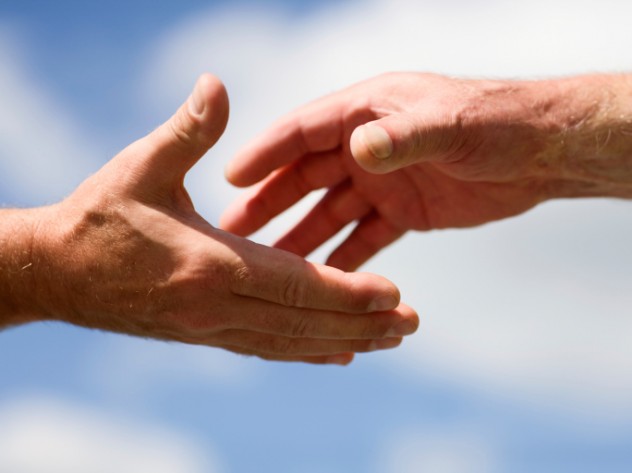
When people save lives, it’s usually because it’s the right thing to do and not because they want something in return, so you don’t necessarily owe them something. If someone does save your life, though, it would be nice to hang around and make sure they’re okay afterwards—or at least thank them. Deng Jinjie wasn’t granted that privilege when he helped save an entire family from drowning.
Deng was walking his dog along the Sunshui River when he saw a family struggling to stay afloat. They were attempting to retrieve their small daughter, who had drifted into dangerous waters, and found themselves in danger, too. Seeing no nearby help, Deng made the brave decision to jump into the water himself with two other passersby to rescue the family.
After the family was returned to safety, Deng himself began to struggle and quickly disappeared from view when he was dragged into a nearby series of rapids. Without a second thought to the man who just saved them, the family began to pack up and leave. When their other rescuers tried to stop them, the family curtly explained that the situation had “nothing to do with them” before disappearing in the ensuing frantic search for Deng. Deng’s body was pulled from the water a short while later. The family later apologized for their actions when they learned that their rescuer had died, which apparently makes everything better.
7 Carry A Dying Girl (Due To Back Problems)

When 14-year-old Shannon Powell collapsed in a violent seizure during a cross-country run in the UK, her family initially believed her to be in good hands due to the large amount of staff present at the race. However, it quickly became clear that no one really knew what they were doing. Rather than calling an ambulance, a race assistant instead called for first-aid to assess the situation. It wasn’t until after they arrived and determined that the situation required more than a Band-Aid or an ice pack that an ambulance was called—and that’s when the real trouble started.
The ambulance crew had trouble even getting to the track because the gates had been inexplicably locked by the organizers, who had assumed that the paramedics would have a set of keys The paramedic also had trouble finding Shannon’s lifeless body because no one had bothered to tell them where she was. She had, in fact, been left in the freezing mud with a coat over her face for an hour. When the paramedic crew finally reached her, Shannon’s ordeal was far from over. The paramedic on the scene refused to lift Shannon from the dirt citing “health and safety reasons”—that is, she had a bad back.
Shannon later died after yet more bumbling incompetence, involving a second ambulance being called by the first ambulance crew. Amazingly, before sending the much-needed second ambulance for the dying little girl, the phone operator asked if the crew had the number for a taxi first.
6 Give A Fire Extinguisher To A Man Whose Car Is Burning
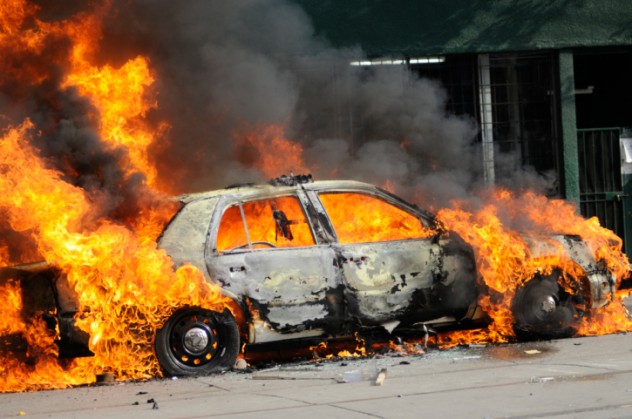
While driving to work one morning, British teen Don Connell noticed smoke rising from his engine block. Having deduced that this was probably the sort of thing one should attend to sooner rather than later, Connell stopped his car, called emergency services, and ran to a nearby shop for help. Once inside, Connell asked the cashier working the register for access to the store’s fire extinguisher so that he could attempt to tackle the blaze before it became a major issue. Rather than handing Connell the fire extinguisher, the cashier told him no and continued working.
The cashier claims that the extinguisher was denied because of concerns for Connell’s safety and the company’s liability, but Connell tells a very different story. According to him, he was refused because replacing the extinguisher would be too expensive. He insists that, as a mechanic, he was fully trained to operate a fire extinguisher and could have easily repaired the damage to his car, had the fire been put out in a timely fashion. Instead, he was forced to watch as the blaze consumed the clothes and college coursework he’d been storing, as well as the car he’d poured so much money into.
5 Pull A Trapped Man From A Ditch
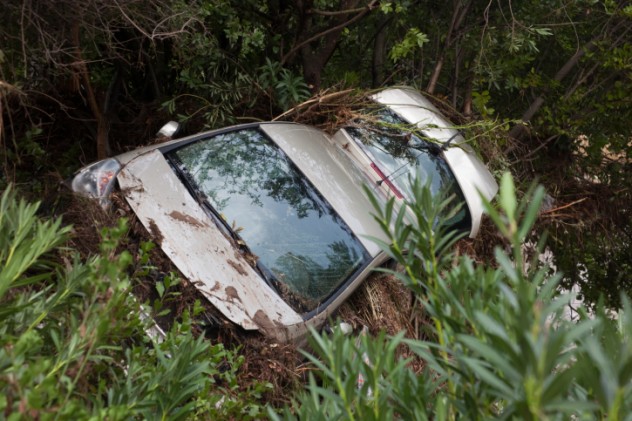
Michael Thornton was in a car with his friends when its intoxicated driver swerved, launching the car into a roadside ditch filled with water. The driver was able to climb out of the car, pull out the other passenger, and run to a nearby house to call for help, Thornton was left behind. When help arrived in the form of an ambulance crew, they made the bold decision to not jump into the “shoulder high” still water in an attempt to rescue Thornton—though they were okay with treating the two men not currently trapped underwater.
Officer Leslie Day, on the other hand, jumped in the water to pull Thornton to safety immediately upon arriving at the scene. Sadly, attempts to revive Thornton failed and he was later pronounced dead. The coroner later lambasted the actions—or lack thereof—taken by the paramedics, but praised Day’s heroics.
4 Wade Into A Shallow Lake (To Save A Dying Man)
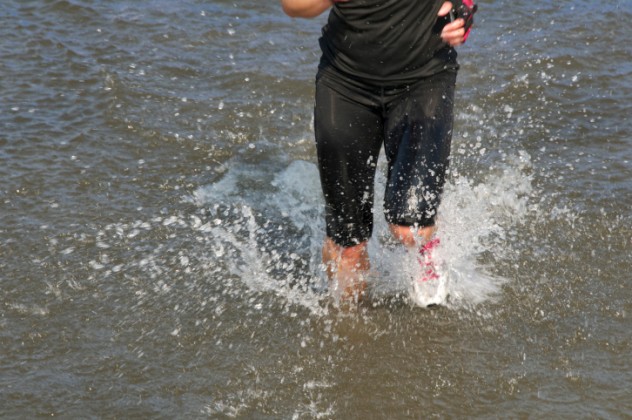
Englishman Simon Burgess was reportedly feeding some swans when a sudden seizure caused him to lose his balance and fall into the lake, which was only about 1 meter (3 ft) deep. In a terrible stroke of misfortune, Burgess fell face first, causing him to lose consciousness.
Passersby alerted the authorities to a body floating in the lake, urging the firefighting crew that showed up to reach the man before it was too late. He’d only fallen in 5–10 minutes prior, they insisted, there could still be time. The crew explained, much to the crowd’s confusion, that they couldn’t enter the water to save Burgess because it was “deeper than ankle height.” The woman who called them actually stated incredulously “You’re having a laugh.”
As Burgess’s body remained floating helplessly nearby, firefighters halfheartedly tested the depths of the water with a pole. It was a full 30 minutes before Burgess was finally removed from the lake, thanks to the arrival of a specialist water crew who is called in to handle all “shallow end of a typical swimming pool” level incidents. Unfortunately, it was too late. The coroner later confirmed that, had the firefighters reached him when they first arrived, he could have lived.
3 Stop Picking Up Train Passengers (During One’s Heart Attack)
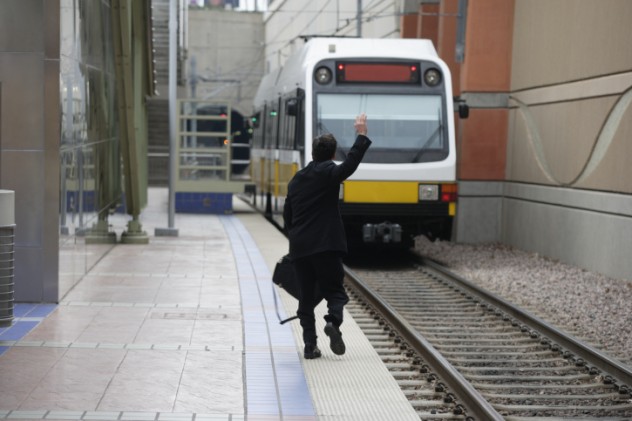
When 61-year-old James Allen had a heart attack during his morning commute on the Framingham–Boston train, his fellow passengers sprang into action, administering what little medial aid they could with what they had on hand. The train crew informed them that medical personnel could only reach the train at a station a few stops ahead. Luckily, it would only take a few minutes to get there—if the train gunned it, Allen would have a great chance of survival.
Bafflingly, the conductor continued to make his regularly scheduled stops, well aware that a medical emergency was underway. The train spent several crucial minutes loading and unloading passengers before they reached their target, and by the time Allen finally got the medial attention he needed, there was little that could be done. He was pronounced dead a short while later.
The assistant conductor later defended this decision, insisting that speeding past the stops would have been dangerous. However, a spokesman for CSX Transportation, the people who owned the actual train, later stated that an exception would—and should—have been made.
2 Rescue Drowning Teens (For Free, At Least)

When a group of students from the Changjiang University in the Hubei area of China saw a couple of children drowning in a local river, they threw themselves into harm’s way and dove in to save them. However, what should have been a fairly standard rescue attempt was marred by tragedy when it was later revealed that a fishing boat mere meters away openly refused to help.
After the children were safely pulled ashore, three of the students who’d jumped into the water found themselves in danger. Their classmates, exhausted from already rescuing three children, beseeched the nearby fishermen for their help. The fishermen again refused, stating that they relied on salvage to live and would only help for a price. They even refused to throw the students a life-preserver—that, too, would cost them. You see, as drownings in the area become more common, fishing out the bodies of victims has become a rather lucrative—if macabre—-source of income for some people. From the perspective of the fishermen, they would have actually taken a loss that day if they’d rescued the teens.
A few minutes after this horrifying exchange, the students succumbed to fatigue and drowned. When the families of the students arrived, the fishermen were only convinced to fish out the student’s bodies when the gathering crowd managed to clump together enough money to pay them.
1 Help An Unconscious Woman (Because They Were On Break)

Eutisha Rennix was six months pregnant and working at a coffee shop when she had the good fortune of collapsing in the presence two emergency medical technicians, who were enjoying their lunch nearby. Tragically, she had the misfortune of happening upon the two most careless EMTs in the world. Instead of rushing to the pregnant woman’s aid, the EMTs instead told Rennix’s co-workers to call 911 before walking out with their lunches. Eutisha and her unborn child later died in hospital.
In many other countries, this callous act of indifference would have actually been massively illegal. There’s a concept in law known as “duty to rescue,” which roughly states that a person who is in a position to help someone in peril—such as emergency medical personnel—without putting themselves in any immediate danger must do so on penalty of prosecution. However, as no such law exists in the US, both EMTs were legally off the hook. One of them, Jason Green, did get his karmic comeuppance, however—he was shot in the face a year later.
Feel free to harass Karl on Twitter about this article.








